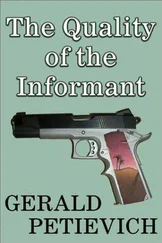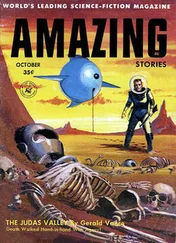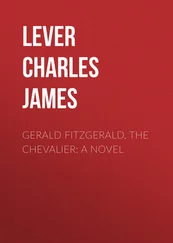‘I damned you, for a brute!’ I shouted, and was appalled by the reverberation of my voice in that big old house. ‘A brute, a brute! Keep your dirty money! Damn you, keep it!’
His old servant, coming in with a great silver tray at that moment, stood aghast. But my uncle laughed, and said: ‘A show of spirit, Rodney, what? Back you go to four hundred a year…. Bring in the oysters, Lambert!’
Lambert put down the tray. There were three oval silver platters, each platter indented at the periphery with twelve deep hollows. In each hollow lay a fat Colchester oyster in the deep-shell. In his ceremonious way, Lambert uncorked a bottle of Chablis, and poured a little into my Uncle Arnold’s glass. He, sniffing and mouthing the wine, grunted: ‘Sound! … Lambert, wine to Mr Rodney,’ Then, to me, with a sardonic twist of the mouth: ‘You won’t take an oyster, by any chance, will you, Rodney?’
I said: ‘Not for any consideration, thank you, Uncle Arnold. You know oysters disagree with me. They make me ill. No, thanks, really!’
He was at me again like a bull-terrier. ‘Oysters disagree with him!’ he said, to the chandelier. ‘Disagree! As if any self-respecting oyster would condescend to agree or disagree with this grain of grit! An oyster would turn him into a seed pearl for a little girl’s bracelet…. Oh, bah! Last of the season – isn’t it, Lambert?’
Lambert said: ‘The last oysters of the season, Sir Arnold. This is the thirtieth of April. We’ll not have oysters again until there is an R in the month – September first, Sir Arnold, as you know.’
When Lambert had left the room, my uncle grumbled: ‘May – June – July – August … four months, before the oyster season opens in the autumn. And what am I to live on until then? … Chicken, I suppose …’ Then he glowered at me, and said: ‘Oysters disagree with you, Rodney, do they? They make you ill, what?’
‘Yes, Uncle,’ I said. ‘I am what they call “allergic” to shell-fish. They make me … they give me convulsions.’
‘Then I’ll tell you what,’ my uncle said. ‘Here’s three dozen oysters, the last of the season. I’m going to eat two dozen. You eat the third dozen, and I’ll give you back your eight hundred a year. What say?’
The very smell of the oysters nauseated me. I could only say: ‘I can’t, I won’t!’
Eating greedily, my Uncle Arnold said: ‘I’ll tell you what, young Rodney: for every oyster you eat, I’ll raise your allowance fifty pounds a year…. Come on, now!’ And he held out, on a three-pronged fork, a fat Colchester.
‘Go to the devil!’ I cried, starting back, and striking the fork out of his hand.
He grinned, taking up another fork, and said: ‘Spirit! Bravo! Your allowance is now four hundred and fifty.’
‘Oh, Uncle!’
‘Four hundred,’ said he, swallowing another oyster. ‘Oh, dear me, how we go to the dogs, poor us! … What wouldn’t I give, now, for a Saddlebag! You don’t know what that is, do you, Rodney?——’ my uncle slavered most unpleasantly, in reminiscence. ‘You take a great, thick, tender steak, and slit it down the middle on two sides so that it opens like a pocket. Stuff it with eight or ten succulent Whitstable oysters, with their juice, and sew up the open edges. Grill, preferably over charcoal. … Oh, the very idea of it turns your stomach, doesn’t it? We used to wash it down with porter, and chase it with port, you milksop…. And all the damned quacks allow me, now, is fish and white meat. Not even salt. My blood pressure is high, they say, and my arteries hard. … I never noticed that my arteries were hard.’
Here the old man held out a gnarled left fist, bulging with blue veins. He touched one of these veins with the forefinger of the other hand, and said, quite pathetically: ‘Springy as a pneumatic tyre. What’s hard about that? … Doctor says red meat and wine will make me drop in my tracks…. Salt, too, they deny me. And what is life without salt? … No excitement, they say. So what is left? Other people’s excitement, vicarious pleasure … and you, Rodney, deny me even that…. Ninety-eight per cent water, you vegetable! At least I can live to watch you wriggle…. An oyster would make him ill. Go to bed, Rodney, go to bed – I’m sick to the heart at the sight of you! Go away!’
He looked so lonely as he sat there, feeling the big blue veins in his clasped hands, that I said: ‘Oh, my dear Uncle, forgive me if I have offended you——’
‘– What was that you said?’
‘Oh, Uncle——’
‘– I thought you would come around to that again. Three hundred and fifty a year it is now. Go to bed.’
Such was Sir Arnold Arnold, my uncle: a brutal old man, who had lived only for pleasure; a savage hedonist, whose appetites had outlived the means of gratifying them. Lusty, in spirit, as an uninhibited bon vivant of thirty, here he sat, at eighty, with half a million in the bank, and nothing to look forward to but the oyster season next September. For the fear of death was upon him. The doctors had warned him that, although he might be good for another ten years of life, if he took care of himself, a little over-indulgence in food, or wine, or emotional excitement could kill him as quickly and as surely as a bullet in the heart. Much as I hated him that evening, I was sorry for him. Going to bed, I reflected: Why, I don’t believe that even his oysters give him any great pleasure, now that he can’t spice them with pepper sauce ….
I thought of his many kindnesses to me – he may have been a ruffian, but his heart was in the right place – and, although he had just ruined me, I forgave him. In a way, I loved him – even admired him; and if I ever hated him, it must have been because I envied him. Examining my inner heart now, I come to the conclusion that he was the man I should have inclined to be if Nature and Circumstances had given me half a chance.
I swear, I never really meant to kill my uncle.
* * *
… I could not sleep. I lay awake, reproaching myself, attacking myself from every angle…. There was no doubt about it, my uncle was right in his estimate of my character. I was a milksop, a weakling, a vegetable, ninety-eight per cent water. I did cut a ridiculous figure. I had made a fool of myself that very evening, with my evasions, and my confessions which were not confessions….
… But was my marriage to Mavis something to con fess, like a crime?
… I felt my face growing hot in the dark; and, remembering my uncle’s constant allusions to my incurable habit of blushing, burned hotter. No one had the right, I told myself, to make game of a man because he blushes at a word. There is cruelty in that – schoolboy insensibility. You might as reasonably make mock of a man because he has one leg shorter than the other…. And as for making a joke of my red hair – why, if you condoned that kind of humour, you condoned, in effect, the persecution of negroes because they are black….
I remembered a boy who was at school with me, at Eatonstowe. His name was Ward, and he was an albino. None of the other boys bore him any grudge – yet how pitilessly they persecuted him! One day somebody sent him a message saying that his cousin had come to see him; and there was a pink-eyed white mouse in a cardboard box…. Yet he was silent. He made a pet of this mouse, kept it in his pocket. It used to run up his sleeve and sit on his shoulder. He used to take the mouse to bed with him…. One morning, poor Ward woke us all up before the bell, I remembered: he had turned over in his sleep, and smothered the mouse; and that was the first time I had ever heard that lonely boy cry … and oh, the desolate hopelessness of it, the woe, the helpless grief! It struck us silent, and afterwards we offered Ward toffee and fruit; but he would never speak to us any more, and soon his guardian took him away from school…. Us, I remembered; because I – God forgive me – had been among the worst of Ward’s persecutors. Why? Because, before he had come to school, it had been I who was the butt of the form, on account of my fantastically red hair. It had been a relief to have someone else to persecute….
Читать дальше











